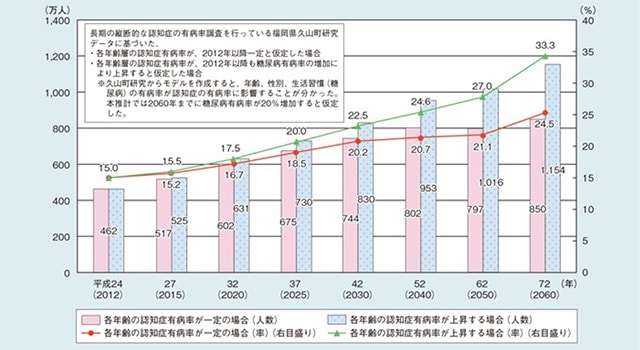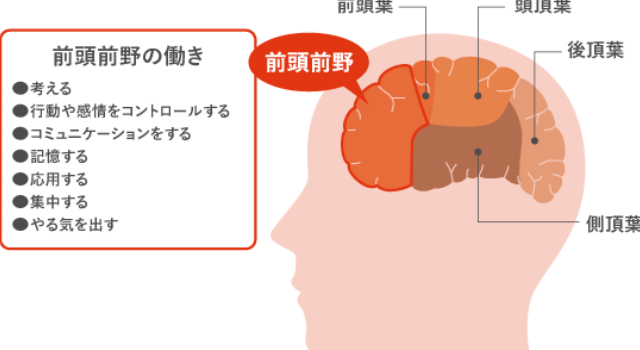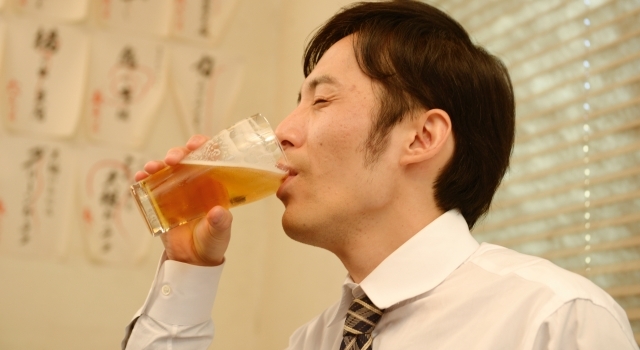According to a 2012 Ministry of Health, Labor and Welfare announcement, the number of people with dementia was approximately 4.62 million, or 15% of Japan’s elderly over the age of 65. Then, according to the 2017 White Paper on Aging Society (Cabinet Office), it was estimated that by 2020, the number of patients with dementia will exceed about 6 million and account for 17.5% of the elderly population.
If dementia continues to increase, it may exceed 20% of the elderly population by 2025 when the baby-boom generation turns 75, and one in five people could have dementia. Also, it is expected that a significant proportion of dementia patients will include MCI (mild cognitive impairment).
If left unchecked, prime-working households in their late thirties to forties could face issues such as dementia care. However, by taking preventive measures early, it is possible to moderate the rise. It was also announced in June 2019 that suggests dementia may be delayed by improving exercise deficiency and preventing lifestyle-related diseases such as diabetes and hypertension.
From now and to the future, national and local governments will announce more evidence and initiatives for dementia prevention, so it is important to keep up-to-date on dementia information and to have correct knowledge. Let’s not only think about our parents’ generation, but ours as well.
*Source: 2017 White Paper on Aging Society, “The Status and Trends of Elderly People and the Surrounding Environment” (Cabinet Office).









